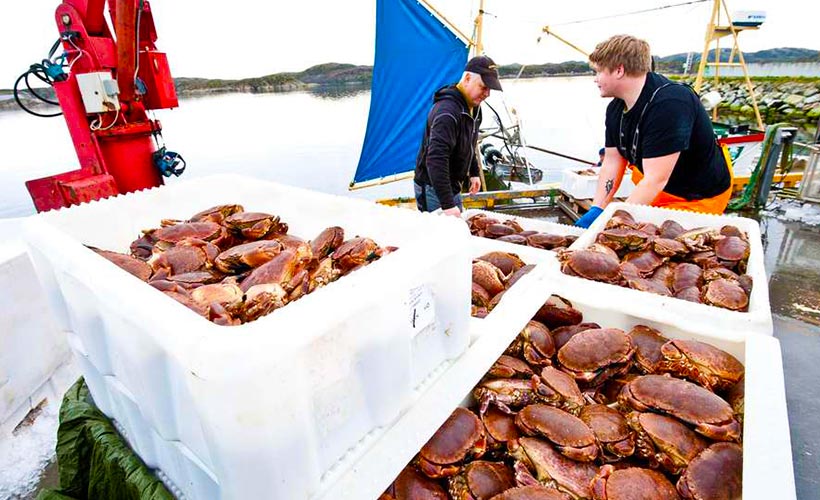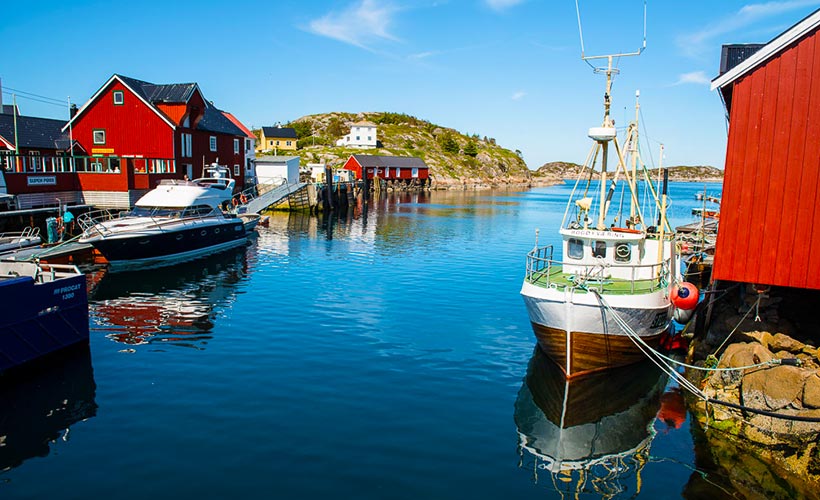The Effects of Globalisation on the Seafood Industry in Norway

The world feels smaller than ever, with global trends and events affecting us in ways that they never have before. With an abundance of natural resources, an educated workforce, and an enviable approach to technology, Norway is in a perfect position to benefit from globalisation.
However, that’s not to say that the country doesn’t face challenges.
As a microcosm of the affects of globalisation, Norway’s seafood industry is an interesting study.
On the one hand, there is a bigger market to work within. However, on the other side of the coin, there is also the pressure to meet changing demands, greater costs and more competition.
Within the context of globalisation, Norway’s seafood industry also has to consider international competition around prices, as well as global governance around illegal, unreported and unregulated fishing (IUU).
There is little doubt that globalisation has represented opportunity, but it has also presented plenty of obstacles that Norway has had to (and will continue to have to) overcome.
Taking Advantage of Globalisation
The opening months of 2022 saw a record value of exports for the Norwegian seafood industry.
This continued success is due to seafood companies and organisations, as well and governance, taking advantage of the opportunities that globalisation presents. It
Norwegian seafood’s reputation is another one of the reasons why it is successful on an international level. The industry is famous for its top-quality produce, as well as an ethos of sustainability and regulation.
Over the first two months of the year, the value of exports grew in large markets, such as the USA, France, and China.
Challenges
In the past, members of the Norwegian Ministry of Fisheries and Coastal Affairs foresaw a continued change in global commerce when releasing a document entitled ‘Norway and Fisheries Globalisation – Challenges and Policy Priorities’.
Although over a decade old, the challenges listed in this document still stand true today, including the following:
Regulation

Norway enjoys regulation to ensure sustainability of its valuable natural resource. However, there are other markets that don’t share this goal, thus not implementing similar policy.
As is stated in the aforementioned document, “we set quotas, regulate the catch through different regulatory schemes, and have different control schemes in place to monitor the catch level.”
In the global market, it is a challenge to compete against those that don’t have the same priorities. Without them, they can produce at a lower cost, and present a lower price.
There is also the issue of the overall management of marine resources. This is now a global issue and one that requires co-operation between countries that often have different priorities.
As a leader in the sustainability of seafood produce, Norway has an important role in the management of these resources.
When it comes to the management of fishing stock, illegal, unregistered and unreported fisheries (IIU) are one of the biggest problems.
This is also written about by the Ministry of Fisheries and Coastal Affairs. It states that “Illegal, unregistered and unreported fisheries are concrete examples of the challenges that globalisation involve. Unregulated trade combined with lower costs for transportation provides good profit margins, also for those operating illegal.”
They also pointed out that this will be an issue when Norwegian seafood producers bring their products to market, adding: “The fact that IUU-fishing activities disregard the legal obligations that usually are associated with fishing might give the operators even lower cost structures, which is a competitive advantage over legal operators.”
International Issues
Over the past few years, a pandemic, global conflict, and Brexit have all contributed to a changing global marketplace.
As Norway exports the majority of its seafood, it requires access to global markets for its continued success.
International trade will always be complex and challenging and as this is an industry that requires world trade, it needs to say abreast of these challenges going forward.
There can also be an increased number of stakeholders involved when dealing an international market in flux. This can make logistic planning for firms more complex.
Speaking of logistics! A lack of control around the pricing of fuel has caused major issues for the fishing industry globally.
Norwegian Seafood and Globalisation
Overall, the Norwegian seafood industry has faced into the challenges of globalisation brilliantly. The value of its exports continues to rise, and it appears to be in a good place.
That is not to say that there aren’t challenges, because there are. The above list just touches on the difficulties of trading in a global market.
However, in what has been a difficult couple of years, the industry has come out the other side stronger.
This will give confidence for continued success for Norway’s seafood industry.
